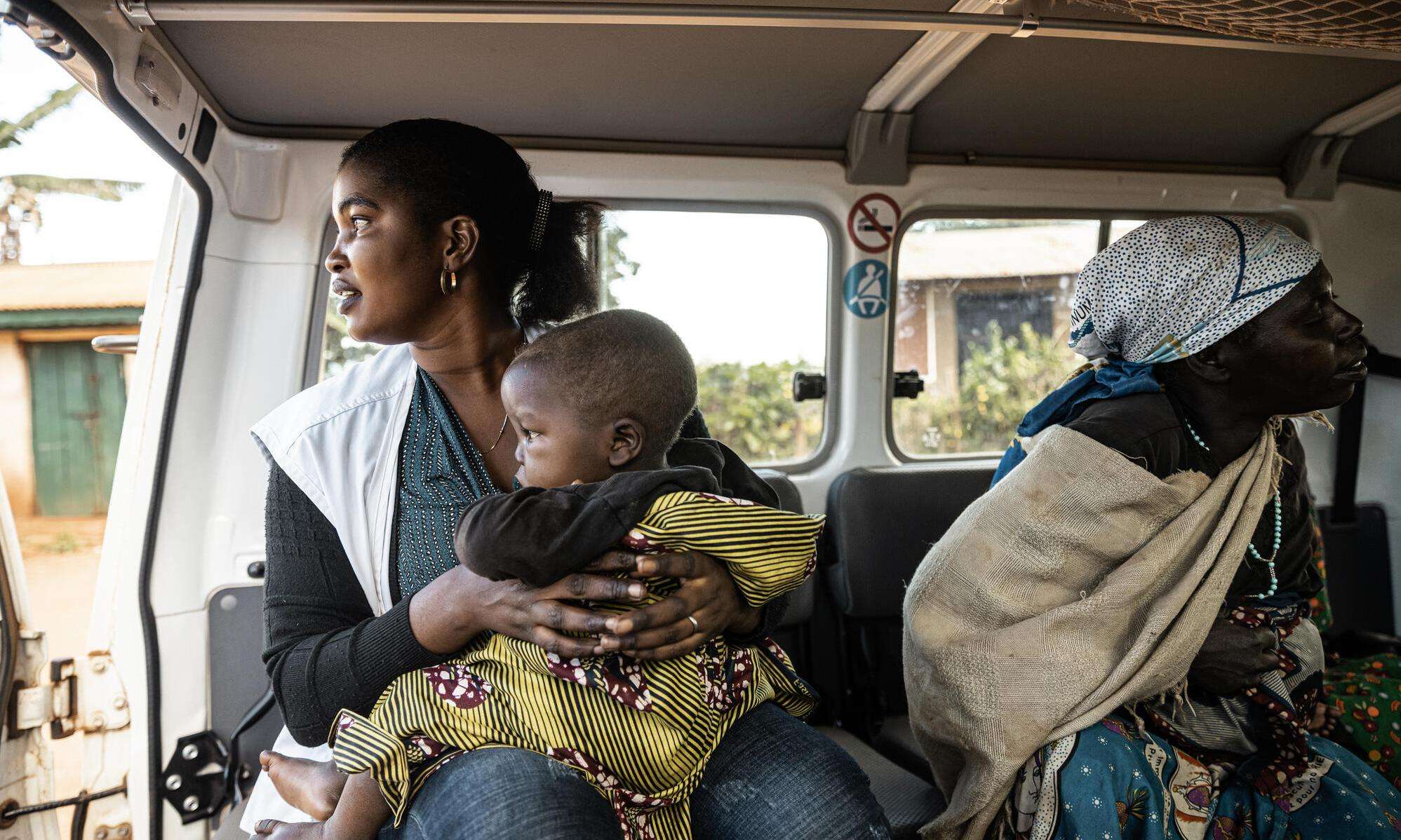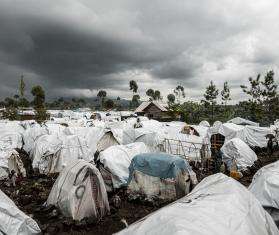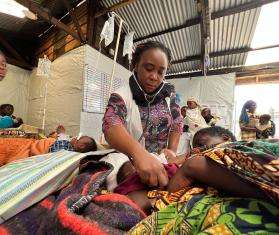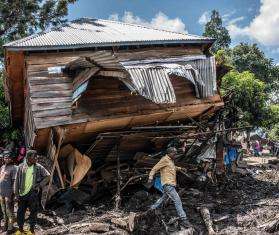The decades-long conflict in Democratic Republic of Congo (DRC) has forced an estimated 700,000 people from their homes in Djugu, Ituri province. Peace processes have been launched in the past without success, and the situation has deteriorated since the start of the year. So far, over 150,000 people have been displaced in 2023 alone. The situation has severely impacted people’s access to medical and mental health care. When the fighting gets too close, patients and medical staff from health care facilities are among those fleeing violence—even if it means interrupting treatment. In some areas, Doctors Without Borders/Médecins Sans Frontières (MSF) teams are alone in providing care to displaced people.
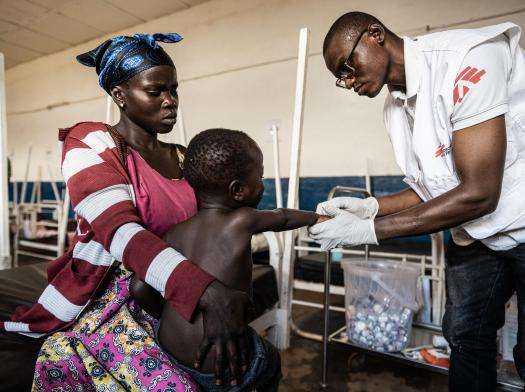
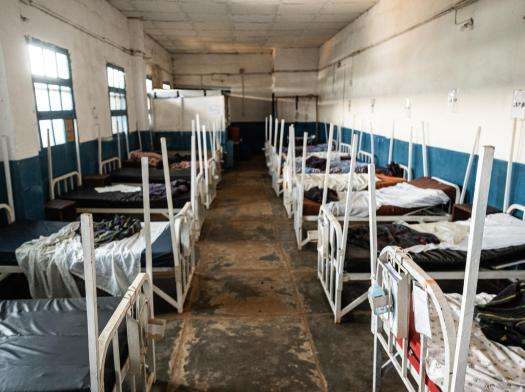
Rutha holds her four-year old son as he receives a shot for infection and fever at Drodo hospital (left), where nearby fighting caused patients to flee for the third time this year, leaving the 100-bed facility empty (right). DRC 2023 © Michel Lunanga/MSF
For example, Drodro hospital, with its 100 beds, emptied out in less than 30 minutes due to the sound of gunfire about a mile away. Some patients and their caretakers were able to escape the area quickly, before the roads became too dangerous to travel, but others were too late and had to turn back. An ambulance driver took them back to the hospital, where they all squeezed into one room to take refuge. They switched the generator off to be able to hear if gunfire was approaching, leaving only the sound of children crying. This is the third time since the beginning of the year that medical facilities in the Drodro health zone have been deserted due to clashes.
A cycle of trauma and violence
"I was on the hospital bed with my baby when the other mothers came up to us and said, 'We have to leave, there's gunfire,'” said Joécie, whose 17-month-old Salomon is being treated for severe malnutrition and anemia. “People were running around in panic. I wrapped my baby in a blanket and left. But in the panic, I forgot his medical records."
As her son’s condition worsened, Joécie returned to the hospital later that night.“I had no choice but to come back.” Chronic violence, and the fear of further escalation has left people in this area with deep psychological scars. Many are fearful of accessing medical facilities, seeing them as potential targets and inherently unsafe. Some would only seek care for an extreme emergency.
"Imagine that people have been living through this conflict for years, over several generations, with repeated displacements and few prospects for the future,” said Grâce Longa Mugisa, MSF mental health advisor. “They are constantly reminded of the massacres of their neighbors and family members. It's difficult to think logically.”
“When patients flee, what can we do?” said Dr. Kelly Tsambou, MSF’s head of medical activities in the Drodro health zone. “Every patient should be able to feel safe in medical facilities. Elsewhere, hospitals are often used by the civilian population as a place of refuge during conflicts, but that's not the case here.”
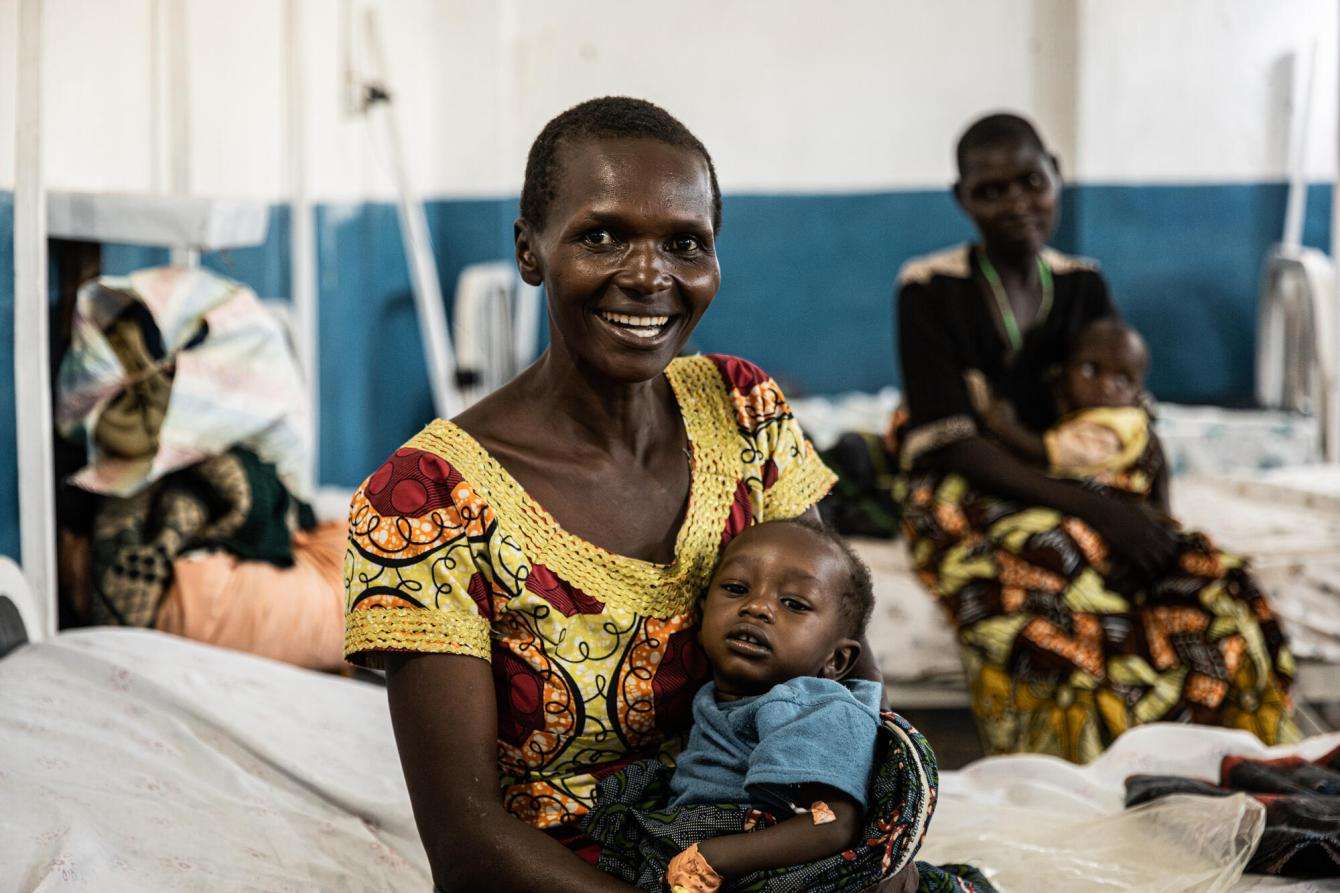
Insecurity directly hinders access to health care
Today, only eight of 16 health facilities in the Drodro health zone in Ituri province are functioning. MSF is continuing to provide aid based on the needs in each community. However, chronic violence and repeated displacement is disrupting medical activities. In response, MSF has deployed additional resources to various health facilities to support the Ministry of Health in providing medical care for as many people as possible.
For instance, MSF set up a mobile clinic in Rho camp for displaced people to provide basic health care and refer patients requiring further specialist care to Drodro hospital. But the number of people living in the camp has nearly doubled since the beginning of the year, now reaching approximately 70,000. To accommodate, MSF teams transformed the clinic into an advanced health post, strengthening its capacity.
MSF teams are also rehabilitating the health center at Blukwa'Mbi—where large numbers of displaced people are living with host families—to transform it into a referral center that can provide specialist medical care. “The construction of a solar-powered operating theater will enable medical teams to carry out procedures such as cesarean sections,” said Soumana Ayouba Maiga, MSF project coordinator. “We want to provide access to more specialist care for people who can't access the hospital in Drodro.”
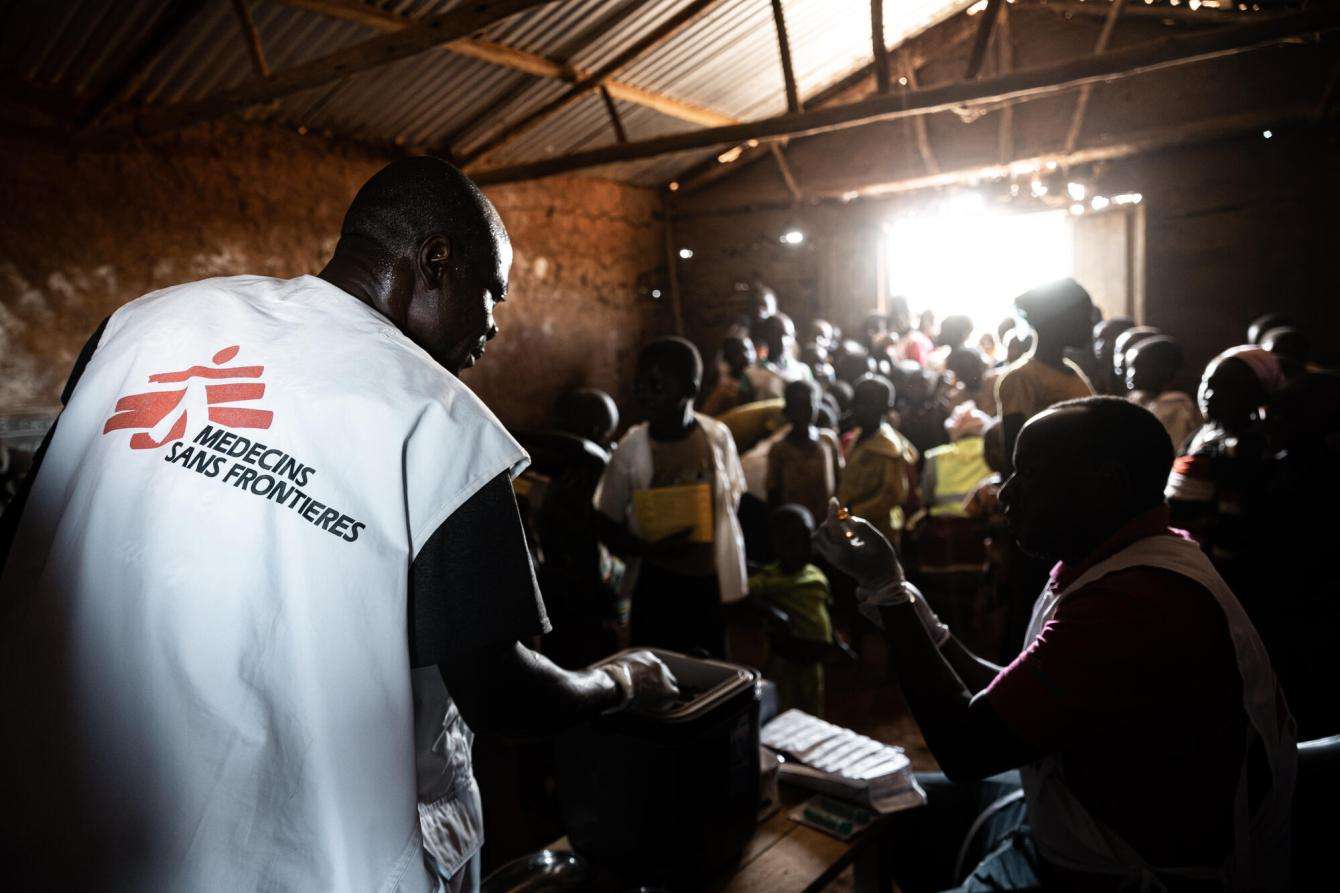
Enormous humanitarian needs call for scaled-up response
"What worries me most today is access to food,” said Micheline, who is known in her community as ‘leader of the moms’ for sheltering 10 people fleeing violence in her home. “Most of us don't eat every day, even the children. It's not harvest time now, so there's nothing. There's not even any drinking water within easy reach.”
In addition to health care, the 1.7 million displaced people in Ituri province are in desperate need of food, clean drinking water, proper sanitation, shelter, and education, —though they receive little political or international attention and coverage. The chronic insecurity makes it impossible for people to farm their crops, which is a main source of income in the area. Many people in the area feel that they have been abandoned.
MSF activities in Drodo
In collaboration with DRC’s Ministry of Health, MSF provides health care in Drodro general hospital, as well as two health centers, two advanced health posts, and six community health sites in the Drodro health zone.
MSF teams provide general medical care, with an emphasis on pediatric care, including treatment for malnutrition, malaria, and respiratory infections; as well as mental health care, family planning services, and care for survivors of sexual violence. Since the beginning of 2023, MSF teams in Drodro health zone have provided 25,630 medical consultations and 435 mental health sessions, as well as treating 850 children for malnutrition and 165 survivors of sexual violence.
